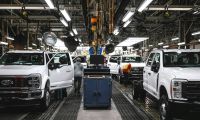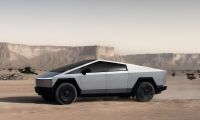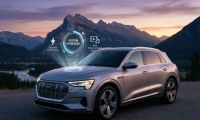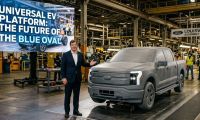A few days ago when Torque News published the story of the Bargersville Police Department's acquisition of 13 Tesla vehicles and how much money they will spend on fuel costs, the topic generated lots of comments across the web, including some very interesting comments from police officers.
One of those comments is from Travis Foreman, who says he policed for 22 years, owns a Tesla himself, and four gas vehicles.
Foreman writes:
I policed for 22 years. I own a Tesla and four gas vehicles.
The use of Teslas for patrol depends on a few factors.
Is it for a S.O., PD or state police? How many miles are driven in a shift? How many units will they have that are freshly charged? Do they have take home, issued patrol cars? If so, how far do they live from their jurisdiction? What is the charging capacity at each office?
When I was a municipal police officer, we did between 80 - 125 miles per shift. When I was a Deputy sheriff, sometimes hundreds of miles. Lastly, the state sometimes does more than Deputy Sheriffs.
It all depends upon the department needs as to whether an EV makes sense for patrol. I know that the repair cost(s) and obviously fuel costs would go way down.
Officer Foreman's comment raises several issues regarding the suitability of Tesla cars for police patrol duties.
Range limitations: Tesla's range (distance on a single charge) might not be enough for all police work. Officer Foreman highlights the difference between municipal police (80-125 miles/shift) and departments like state police or sheriff's deputies, who might cover hundreds of miles.
Charging infrastructure: The comment points out the need for readily available charging stations at police stations. Without enough chargers or a long enough wait for charging, patrol efficiency could be hampered.
Take-home patrol cars: If officers take their patrol cars home and live far from the station, charging becomes an issue if there's no home charging option.
Uncertainties about repair costs: While Officer Foreman acknowledges potential fuel cost savings with electric vehicles, the long-term repair costs of Teslas compared to traditional gas-powered patrol cars remain unclear.
These factors combined paint a picture of Teslas being potentially suitable for some police departments, but not a universal solution. It depends on patrol range needs, charging infrastructure, officer patrol patterns, and long-term maintenance costs. Please, click the red link below to write your comment about the suitability of Tesla cars or EVs for Police of similar services.
I want to end this article with Roger Henderson's comment from the above-mentioned discussion, which sheds big light about the current state of electric vehicles and their use in certain public situations like Hertz.
I support EVs but a lot of people are unaware that the current state of the art for them is not ideal for what will likely be high demand usage. Based on what I learned from the Hertz Rent-A-Car problem, EVs need extra care to maximize battery life including:
1. The Rapid 30 minute charging stations should only be use rarely, which happened to be the only place Hertz customers could use. Its best if you slowly recharge over night.
2. The number of times you plug-in (aka charging cycles I think) reduces the battery life.
3. You should only charge it to 80% unless you're going on a rare road trip and try to not let it fall below 20%.
The rent-A-Car business model is to bring back vehicle completely full or they'll empty out your bank account. I actually thought this was funny when I heard Hertz didn't know this and their fill it up or else profit center forced customers to destroy the batteries. EV's are ideal for daily to work and home commutes but not professional driving demands from what I understand.
Armen Hareyan is the founder and the Editor in Chief of Torque News. He founded TorqueNews.com in 2010, which since then has been publishing expert news and analysis about the automotive industry. He can be reached at Torque News Twitter, Facebook, Linkedin, and Youtube. He has more than a decade of expertise in the automotive industry with a special interest in Tesla and electric vehicles.
Set Torque News as Preferred Source on Google












Comments
Great story. Here in Metro…
Permalink
Great story. Here in Metro West Boston, the local police, not State Police, are using Mustang Mach-Es in many communities. My own town has many. Along with some e-Transit vans used by the town for non-police activities. Across our state, the default is mostly Ford Interceptors, which are very much like an Explorer. These are a mix of hybrid and non-hybrid powertrains. Time will tell if the electric vehicles are a wise financial move, but that is not why the towns are using them. It is strictly for environmental reasons.